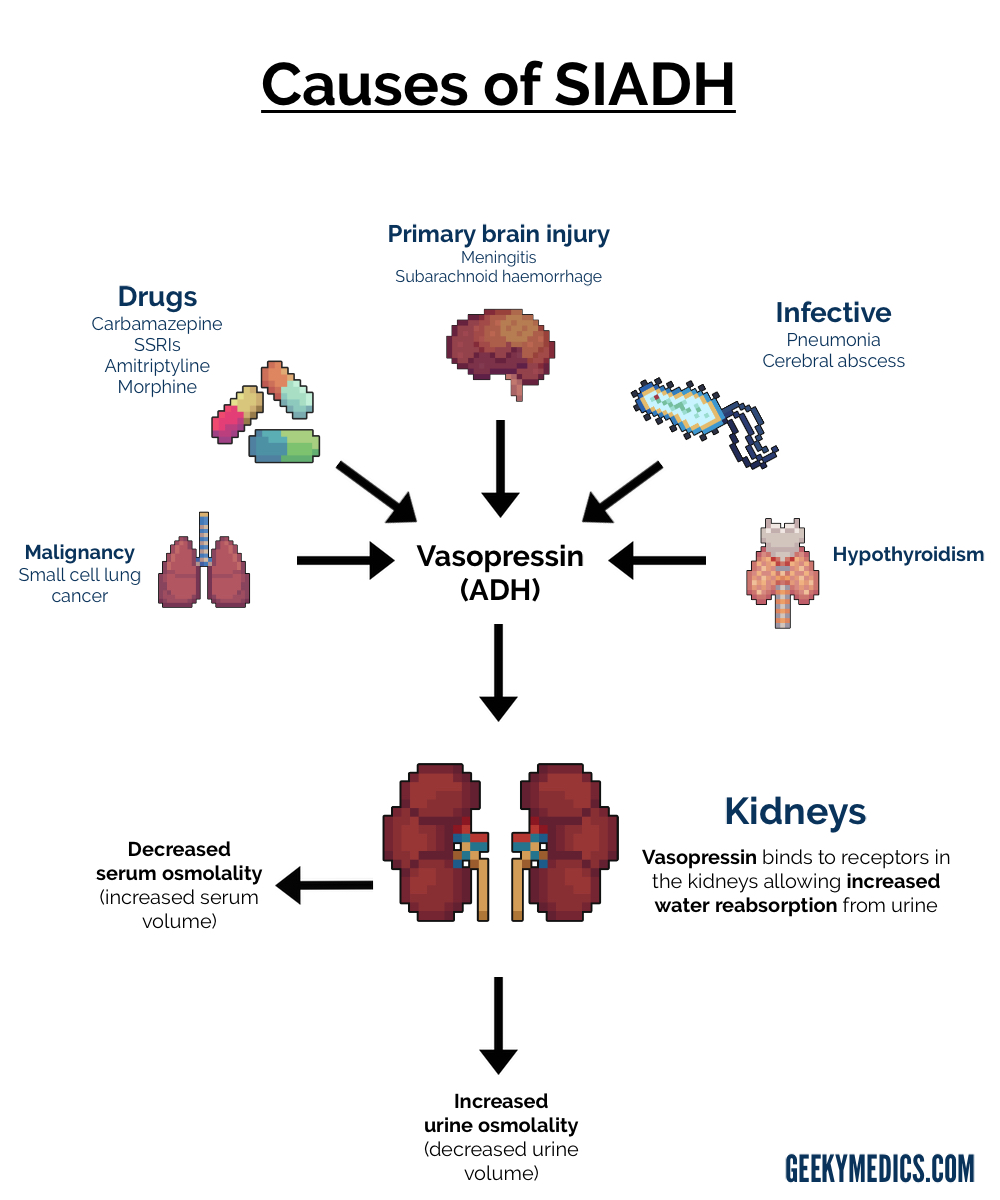A nurse is caring for a client who has chronic kidney disease. Which of the following diets should the nurse anticipate the provider to prescribe?
4g sodium diet
Potassium-restricted diet
High-phosphorus diet
High-protein diet
The Correct Answer is B
Choice A Reason
4g sodium diet. While reducing sodium intake is important for managing chronic kidney disease (CKD), a specific 4g sodium diet is not typically prescribed. Instead, patients are generally advised to limit sodium intake to less than 2,300 milligrams per day to help control blood pressure and reduce fluid retention.
Choice B Reason
Potassium-restricted diet. This is the correct intervention. Patients with CKD often have difficulty excreting potassium, leading to hyperkalemia, which can be dangerous. Therefore, a potassium-restricted diet is commonly recommended to maintain normal serum potassium levels.
Choice C Reason
High-phosphorus diet. This statement is incorrect. Patients with CKD are usually advised to limit phosphorus intake because their kidneys cannot effectively excrete phosphorus, leading to hyperphosphatemia. High phosphorus levels can cause bone and cardiovascular problems.
Choice D Reason
High-protein diet. This statement is incorrect. While protein is essential, excessive protein intake can increase the workload on the kidneys. Patients with CKD are often advised to follow a moderate protein diet to reduce the production of waste products that the kidneys need to filter.
Nursing Test Bank
Naxlex Comprehensive Predictor Exams
Related Questions
Correct Answer is A
Explanation
Choice A Reason:
A urine specific gravity of 1.02 falls within the normal range (1.005 to 1.03) and indicates that the kidneys are excreting water appropriately. In SIADH, urine is typically concentrated due to excessive antidiuretic hormone (ADH) secretion. A normal urine specific gravity suggests that the ADH levels are normalizing and the condition is resolving.
Choice B Reason:
A sodium level of 119 mEq/L is significantly below the normal range (136 to 145 mEq/L) and indicates persistent hyponatremia. This finding suggests that the SIADH is not resolving, as effective treatment should lead to an increase in serum sodium levels.
Choice C Reason:
A BUN level of 8 mg/dL is slightly below the normal range (10 to 20 mg/dL) but is not a primary indicator of SIADH resolution. BUN levels can be influenced by various factors, including hydration status and renal function.
Choice D Reason:
A calcium level of 8.7 mg/dL is slightly below the normal range (9 to 10.5 mg/dL) but does not directly indicate the resolution of SIADH. Calcium levels are not typically used to monitor the effectiveness of SIADH treatment.

Correct Answer is B
Explanation
Choice A Reason
4g sodium diet. While reducing sodium intake is important for managing chronic kidney disease (CKD), a specific 4g sodium diet is not typically prescribed. Instead, patients are generally advised to limit sodium intake to less than 2,300 milligrams per day to help control blood pressure and reduce fluid retention.
Choice B Reason
Potassium-restricted diet. This is the correct intervention. Patients with CKD often have difficulty excreting potassium, leading to hyperkalemia, which can be dangerous. Therefore, a potassium-restricted diet is commonly recommended to maintain normal serum potassium levels.
Choice C Reason
High-phosphorus diet. This statement is incorrect. Patients with CKD are usually advised to limit phosphorus intake because their kidneys cannot effectively excrete phosphorus, leading to hyperphosphatemia. High phosphorus levels can cause bone and cardiovascular problems.
Choice D Reason
High-protein diet. This statement is incorrect. While protein is essential, excessive protein intake can increase the workload on the kidneys. Patients with CKD are often advised to follow a moderate protein diet to reduce the production of waste products that the kidneys need to filter.
Whether you are a student looking to ace your exams or a practicing nurse seeking to enhance your expertise , our nursing education contents will empower you with the confidence and competence to make a difference in the lives of patients and become a respected leader in the healthcare field.
Visit Naxlex, invest in your future and unlock endless possibilities with our unparalleled nursing education contents today
Report Wrong Answer on the Current Question
Do you disagree with the answer? If yes, what is your expected answer? Explain.
Kindly be descriptive with the issue you are facing.
